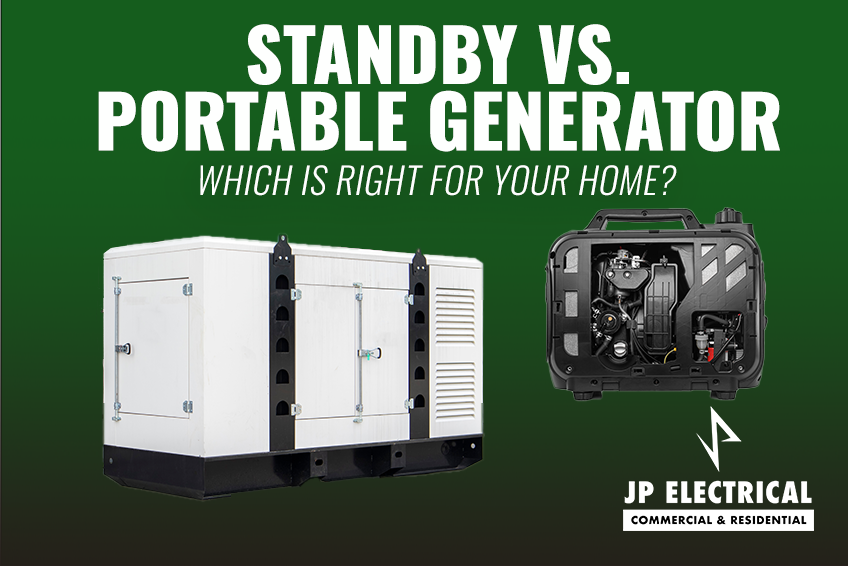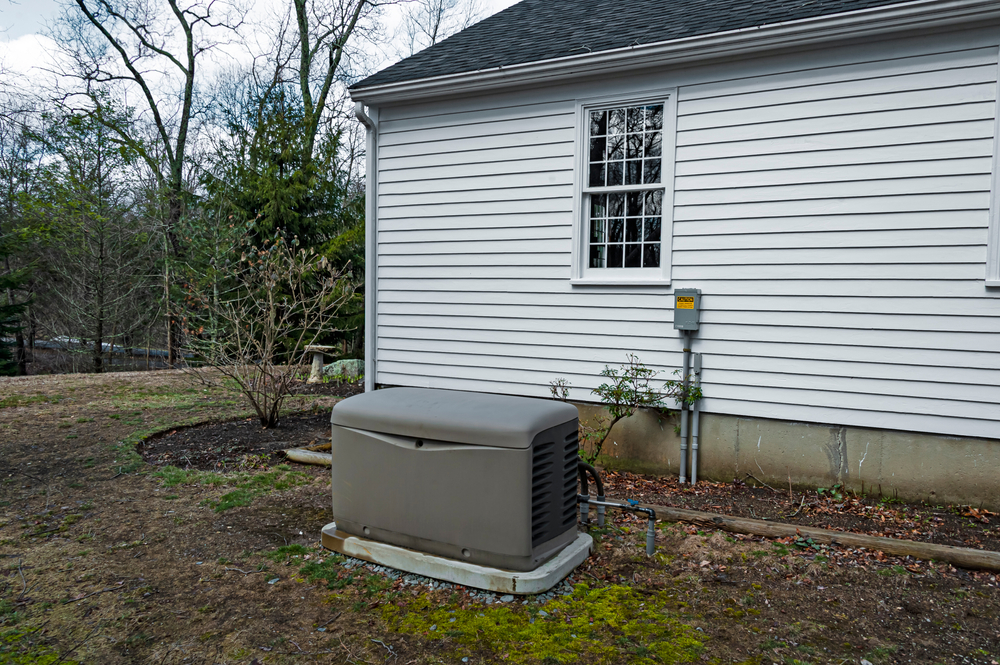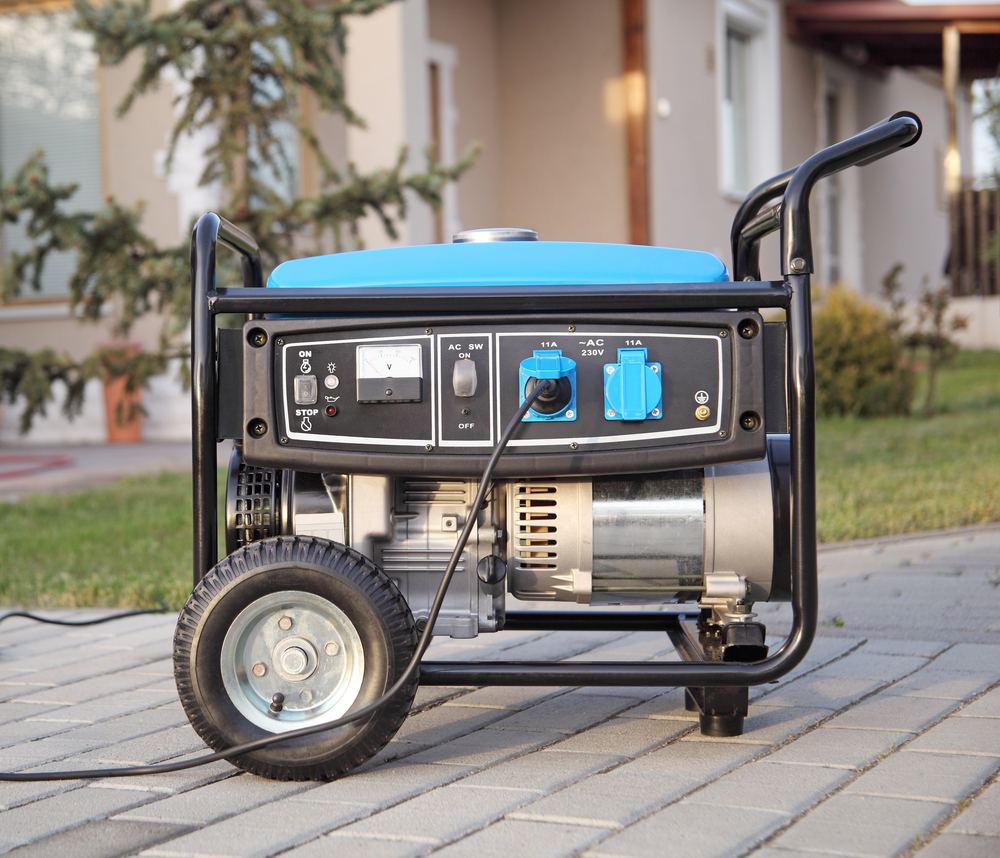Standby vs. Portable Generator: Which Is Right for Your Home?
When it comes to ensuring uninterrupted power supply during blackouts and emergencies, generators are a homeowner’s best friend. They provide the peace of mind that your essential appliances and systems will continue to function no matter what. However, choosing the right generator for your home can depend on your needs, and the primary decision often comes down to whether to invest in a standby generator or a portable one. Let’s explore both options and help you make the best decision for your home!
What Are Standby Generators?
Standby generators are permanently installed units that are designed to provide backup power to your entire home or specific circuits during a power outage. They are typically fueled by natural gas or propane and are connected directly to your home’s electrical system, automatically turning on when power is lost.
Advantages of Standby Generators
Before you decide whether or not a standby generator is right for your home, here are two important questions to ask yourself:
- Is life safety a priority to you? Meaning, do you have medical devices in your home that require power for personal survival?
- Do you prioritize ease and convenience over cost?
If you answered yes to any of these questions, then an automatic standby generator is most likely to be the better option for you. When you invest in a standby generator, here are some things you can look forward to:
- Provides Instant Power Transfer During Shortages: Standby generators offer rapid, uninterrupted power during outages, keeping your appliances and vital systems running smoothly.
- Powers Your Home: These generators are capable of supplying power to your entire home, including heating and cooling systems, lighting, refrigeration, and even electronics.
- Fully Automated: There’s no need to refuel or start your generator manually during an outage. They self-test regularly to ensure they’re always ready when you need them.
- Ensuring Longevity and Reliability: Maintaining a regular maintenance schedule with your local electrician can significantly extend the lifespan of your generator, guaranteeing reliable backup power for many years to come.
- Increase Your Home’s Value: Installing a standby generator can add value to your home and make it more attractive to potential buyers.
Choosing a standby generator can be a great investment for your comfort and safety, ensuring that you and your home remains well-prepared for any unforeseen power interruptions.
Considerations When Choosing a Standby Generator
When deciding if a standby generator is right for your home, you may want to consider these factors:
- Cost: Home standby generators can be more expensive compared to portable generators. These generators require annual maintenance and service and can carry annual costs throughout their lifetime.
- Fuel Source: Standby generators typically require 13 to 48 gallons of natural gas or propane per day for operation. If your gas and electrical connections are conveniently located on the same side of your home, you’re in a good position. Relocating either your gas or power supply to accommodate the generator can be costly and may involve additional home improvements.
- Professional Installation: Professional installation is a must for your standby generator. An electrician ensures safe connection to your home’s electrical system and compliance with codes and regulations.
Before Investing in a Standby Generator
Keep in mind that your existing electrical service may not be ready for a transfer switch installation.This could require service upgrades or adding extra electrical panels to enable a smooth transfer of power during an outage.
The size of the generator can be a subject of debate among electricians. According to the National Electrical Code (NEC), smaller generators are allowed when using a manual transfer switch. However, if you opt for an automatic transfer switch, the generator must be capable of supplying the full load being transferred or work in conjunction with a system that can automatically manage the loads. For example, if you have a 200 amp service and want an automatic transfer switch, you’d need either a 48,000-watt generator or an advanced control system that can shed excess loads.
While some might find these requirements excessive, it’s important to note that they are part of the electrical code. Many cities and jurisdictions strictly enforce these regulations, so it’s essential to be cautious when purchasing a generator. A 10,000-watt automatic generator, for instance, might not comply with code in such cases.
Generators that meet NEC requirements tend to be more expensive and it’s crucial to understand that automatic standby generators must be maintained by certified mechanics to uphold their warranty and ensure proper operation. This ongoing expense is necessary to guarantee that your generator functions properly when it is needed.
What Are Portable Generators?
Portable generators are smaller, mobile units that provide temporary backup power to specific appliances or circuits. They are typically powered by gasoline or propane and need to be manually started and connected to the appliances you want to power during an outage.
Advantages of Portable Generators
Portable generators are highly versatile and adaptable power sources that can accompany you wherever you go, making them perfect for camping trips or situations where you need electricity in off-grid locations. Here are some of the advantages of choosing a portable generator:
- Affordable: Portable generators are more budget friendly.
- Fuel Flexibility: You can choose between propane or gasoline, giving you the option depending on fuel availability or cost.
- Minimal Installation and Maintenance: Setting up a portable generator and connecting it yourself is straightforward and doesn’t require professional installation. This not only provides added convenience but also reduces the need for maintenance expenses.
If affordability, adaptability, and convenience are your priorities, then portable generators can be the perfect solution for your home’s power source.
Considerations When Choosing a Portable Generator
While portable generators offer flexibility and affordability, you should be aware of their limitations. If you decide to go with a portable generator, you will need to fuel it on your own, test it regularly, and be physically able to get it into a place to run it where it will be safe to exhaust. Here are some of the disadvantages when it comes to portable generators:
- Limited Capacity: Portable generators have limited power output, so you will have to prioritize which appliances to run during an outage.
- Manual Operation: It is your job to start and stop the generator manually and manage fuel refills during extended outages.
- Not Designed to Power Your Entire Home: Portable generators are not designed to power an entire home; they are best for providing essential power to a few select circuits.
- Noise and Safety Concerns: Portable generators can be noisy and release smoke or toxic gasses, like carbon monoxide, so proper placement and ventilation are crucial for safety and comfort.
- Manual Transfer Switch: If you decide to go with a portable generator, you are going to need to install a manual transfer switch. That way if you experience a power outage you can easily plug your portable generator into the switch and access emergency power.
In weighing the advantages and disadvantages, portable generators remain an excellent choice for specific needs, but their limitations should help you decide when it comes to ensuring reliable backup power for your home or outdoor activities.
Contact JP Electrical for Your Generator Needs
Whichever generator you choose, make sure to consult with a qualified electrician to ensure proper installation and maintenance, keeping your home well-prepared for any power outage that comes your way. The professionals at JP Electrical can help you find the perfect generator for your Utah home. Contact us today for a free quote!
Categories: Electrical Maintenance • Electricians • Generators




Leave a Reply